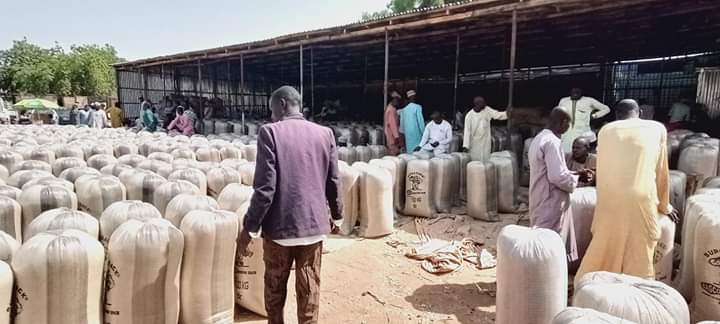Leading investment analyst and lead partner at Global Trust Ventures Limited, Mr Godwin Uba, has given investment lessons on rice business and its value chain in Nigeria.
In an interview, he said “Investors can go into rice farming and rice processing or rice milling plant. Rice milling projects will best be sited in these areas where rice is grown in order to reduce the cost of transportation of the paddy. To set up this project, a minimum space of a plot of land is required to dry paddy rice after harvesting.
He said the components of machines required to set up this project are cleaning facilities, Dehuller, Boiling tank, Polisher, Bagger and other miscellaneous equipment such as wheel barrows, weighing scales.
According to him, “These machines can be fabricated locally. They can also be imported from Europe and some known Asian companies. Prospective investors would be given details on these machines.
Also, project vehicles and generating sets are essential for the smooth running of this project.
Uba averred that “Rice milling could be done on the cottage, small, medium and large-scale, depending on availability of capital and the raw materials – paddy rice. Output could be from 2MT to 150MT per day. Generally, one metric tonne of paddy rice yields about 60kg-70kg of milled rice, depending on milling efficiency, company management practice and the variety of paddy.
“In the process of milling well-parboiled rice free of sand, stones, unpleasant odour, with fewer breakages, whole rice, broken rice, and bran are obtained. Whole rice is packed and sold for human consumption. Broken rice is further milled into ‘’Tuwo Shinkafa’’ (a flour meal) while bran is very important input for manufacturing dietary products like rice bran bread, which has been acclaimed for reduction of blood cholesterol, rice bran oil and livestock feeds.
While revealing that “From rice, you can also obtain puffed rice, rice cakes, rice pudding etc,” Uba said “The husks are used for the production of potassium Hydroxide solution or as fuel for milling plants. It can be seen that virtually all parts of paddy rice are useful.
“The likely cost of the total project will not actually be stated safely unless one knows the scope (whether cottage, small, medium or large scale) proposed investor would like to embark upon. However, the cost ranges from N550, 000 – N10.2million from cottage level to N57million for medium size plant and over N500million for large scale. Basic factors to consider in determining the initial cost include the capacity to produce, the source(s) of the machinery, whether to construct or rent, the location, etc.
He noted that to embark on this project, one needs a business plan (feasibility studies), with detailed costing for all the aspects of inputs, before arriving at a likely total estimate.
“In conclusion, rice milling; an agro-based business is very profitable (45-55% return on investment) and sustainable. It has a low capital requirement and the technical know-how is not complicated. The machinery and equipment can be sourced locally. The project has a short pay–back period.
“It is highly recommended for serious and aggressive promoters, local and state governments and private investors particularly those that are thinking good for this country, Uba added.
- Uba can be reached via ubagodwin@yahoo.com; 08034494437









